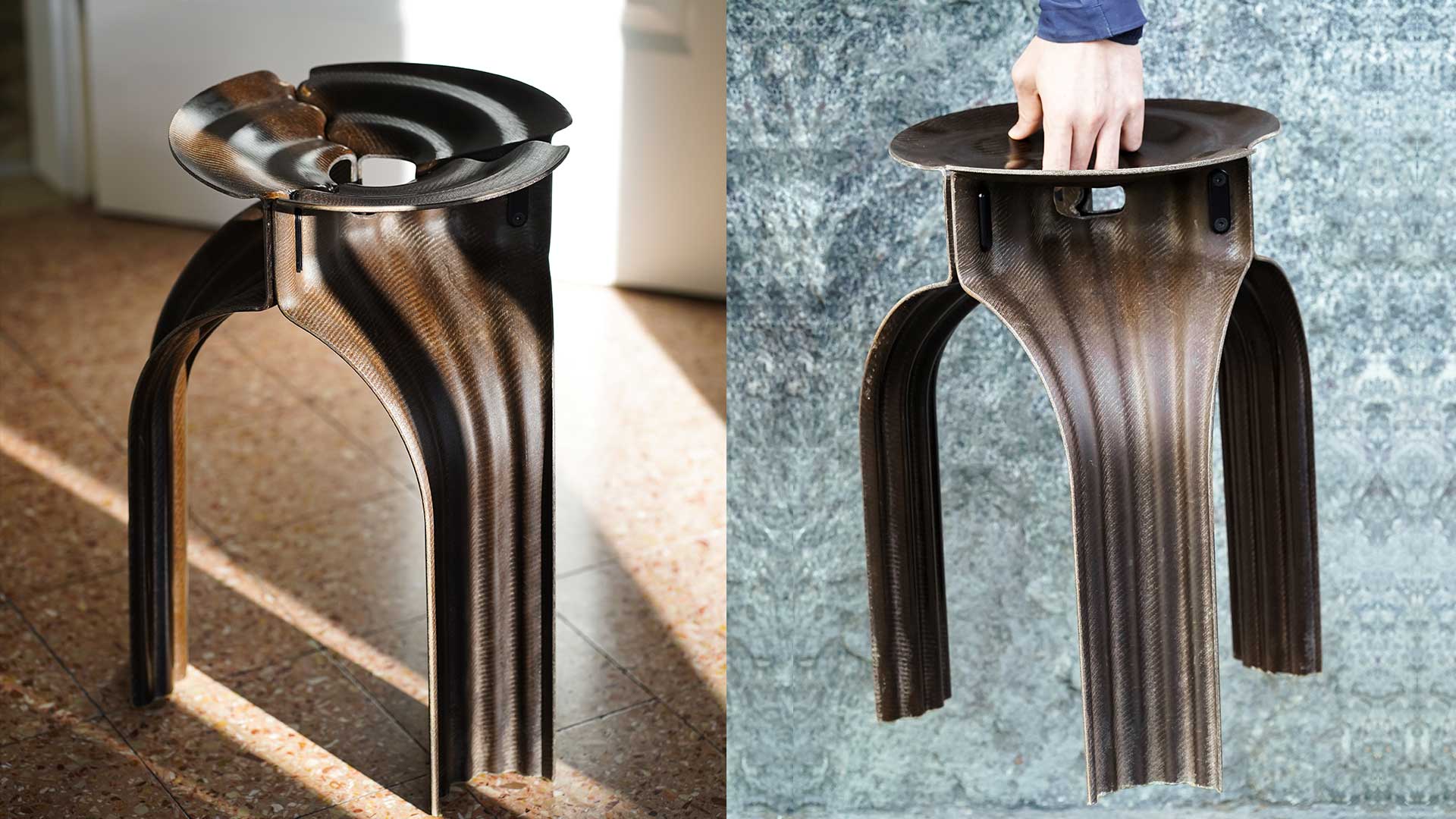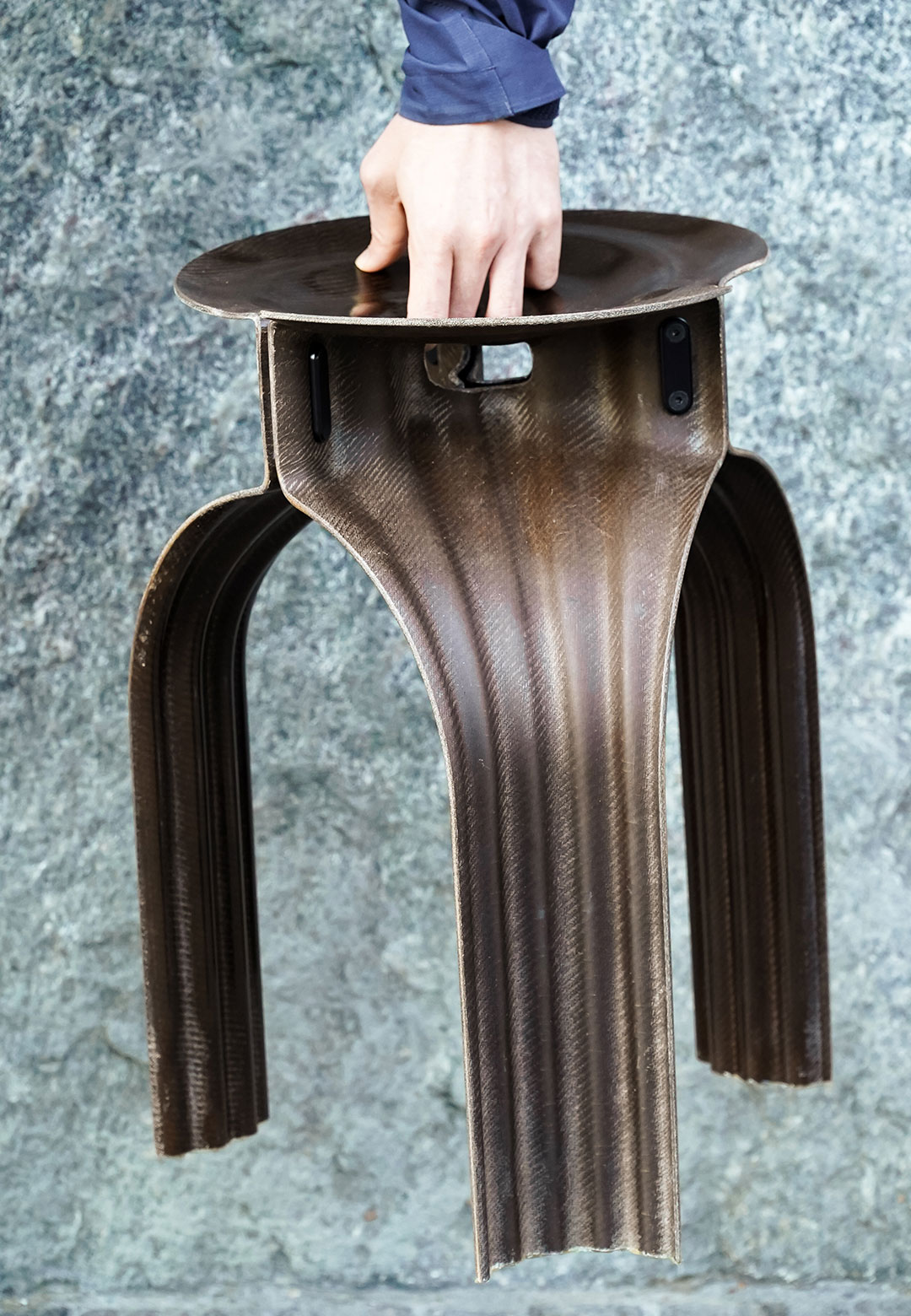A conspicuous, dramatic shift towards efficiency, both environmental and functional, has steadily gained momentum in the past few years within the creative industry. As a consequence of the rising awareness surrounding the climate crisis, a wave of sustainable designs and consistent research and production of biomaterials has catalysed fresh innovations across the realms of art, architecture, and design. Design studios across the world are making deliberate excursions wherein nature does not sit hushed in the backdrop, but is rather, the very essence of their works. Amid hordes of advancements striving towards sustainability, a recurring commonality emerges: sourcing innovation from the mundane. The world witnesses waste becoming virtue, where seemingly obsolete materials propel ahead into researched contemporary ventures, and the revival of simple, time-honoured techniques as protagonists. Regardless of often being met with scepticism, can biomaterial interventions transcend the limits of conventional materials and assemblies?
The 24th edition of SaloneSatellite—an international design event focused on young designers and their endeavours, that partakes in the larger context of the annual Salone del Mobile.Milano design fair (which took place from April 18 - 23, 2023), brought together around 550 designers from 34 countries. Together, they contemplated one question which also defined the theme of this iteration: Design: DOVE VAI? or Design: WHERE ARE YOU GOING? The inquiry nudged participants to explore how harnessing design can address the onslaught of environmental, economic, and social issues. The second prize in the event was awarded to Studio RYTE for their innovative design titled the 'Triplex' stool. The Hong Kong-based studio devised a compact and modular stool design that employs biodegradable flax fibre as its primary material. “The 'Triplex' stool is an experimental furniture that pushes the physical limits of a stool, from structure to weight, and assembly process to after-life,” reveals the project’s official press statement.
Studio RYTE functions as a multidisciplinary group made of passionate architects and product designers, that employs technology and craftsmanship as tools to reinterpret mundane objects, materials, and space. The innovative design studio traverses spheres of spatial design and product design in tandem with blurring the boundaries that separate the two distinct disciplines. Their impactful designs are fuelled by interdisciplinary discourses and collaborations, while attention to detail, identification of potential materials, fabrication methods, and different spatial practices bring them to fruition. An aspect intrinsic to their ethos is their commitment to reducing the environmental impact of their designs, crafting intentional pieces that satiate the requirements of both, aesthetics and sustainability. The team hones expertise in material research and experimental design—their propensity of steering clear of traditional furniture design furthered in the 'Triplex' stool.
The exceptionally light and efficient modular design is made of biodegradable flax fibre, one of the strongest natural cellulosic materials found. PLA (Polylactic acid), a common form of bioplastic made using fermented starch acquired from the corn plant, is the supplementary material used for the furniture design, acting as a binding agent for the flax fibres. The assembly is strategically curved and rests elegantly on the arches that unwaveringly carry the weight above. The lightweight components, although only three millimetres thick, exhibit considerable stability owing to their carefully devised geometry. Each facet of the design is the culmination of a series of digital and analogue models, simulations, and prototypes.
The three identical modules that constitute the stool can be disassembled and stacked with ease and further reassembled with the help of custom-made nuts and bolts. Its compactness ensures that the furniture is carried along comfortably when moving apartments or cities, making it ideal for easy shipping and storage. This is the furniture designers effort towards encouraging users to take the stool with them, as opposed to the object ending up in ever-expanding landfills. At the end of its lifecycle, the flax fibres and the PLA completely biodegrade in nature.
Material research and innovation continue to effectuate interventions that one can only wrap their minds around outside of the constraints of conventionality. It is in instances like this when the material is core to the design—sometimes, even outshining the form and scale—not just for the maker, but also, for the viewer. The 'Triplex' stool comes forth as a testimony of an ongoing assay in the creative community that carries the potential to helm the future of design interventions. Through an innovative lens, Studio RYTE aspires to materialise solutions towards the over-consumption of furniture, as well as the rampant use-and-throw culture—crafting pieces that encourage end-users to question, while proposing and practising plausible answers themselves.






 Sign in with email
Sign in with email










What do you think?